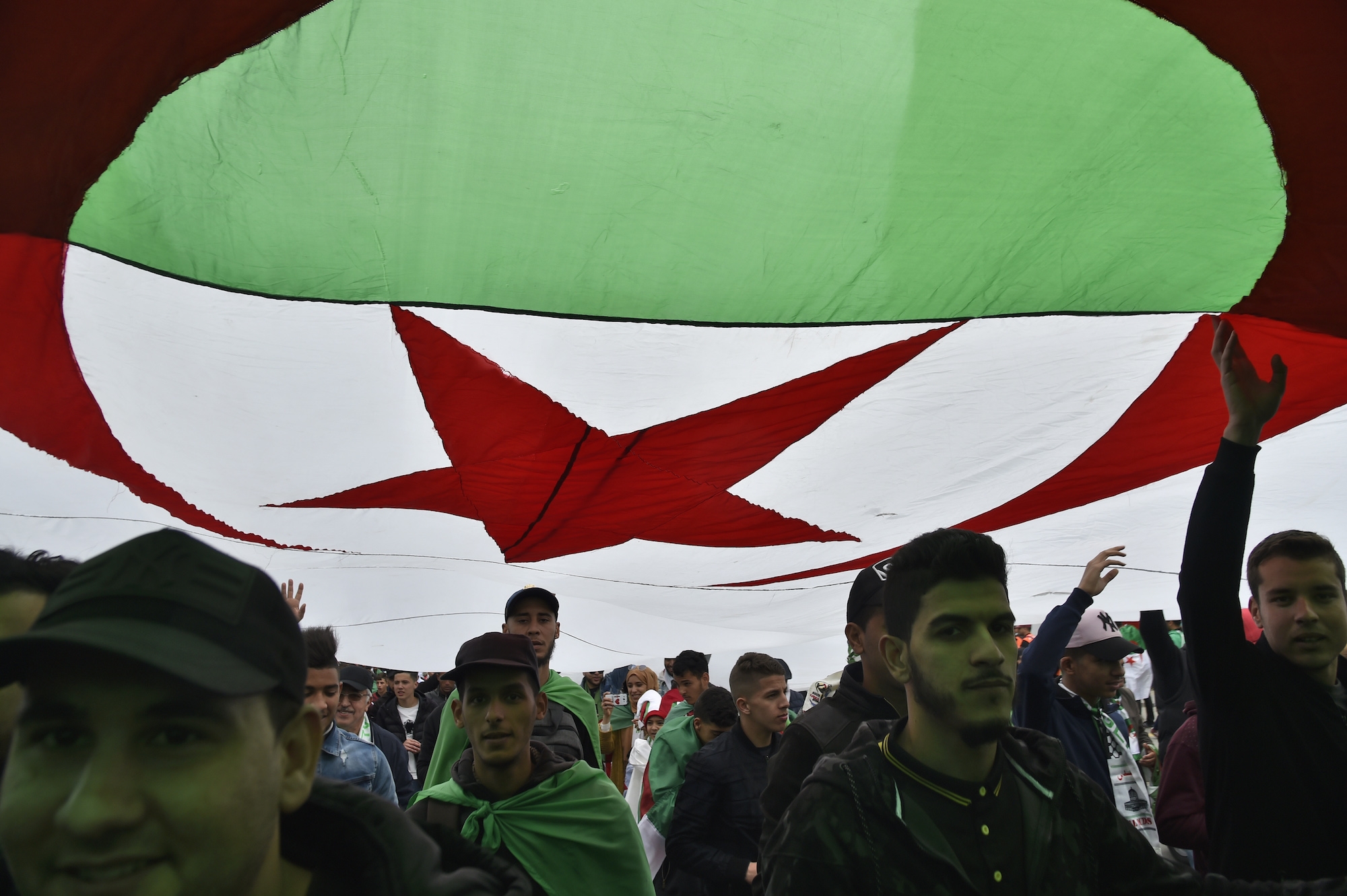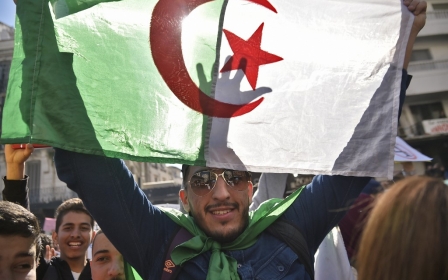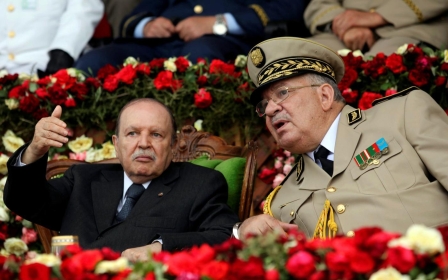'Uproot the system': Algerians demand radical change after Bouteflika exit

The departure of former president Abdelaziz Bouteflika after two decades in power did not stop Algerians marching through the capital Algiers for the seventh consecutive week on Friday, with thousands demanding radical changes to the country's system of government.
The country's spy chief, Athmane Tartag, was also reportedly dismissed on Friday, as the country watches for what the transition process will look like and who will lead it.
Thousands of demonstrators gathered in the capital to push for the removal of the entire political structure, built around the ruling party, army officers, businessmen, unions and veterans of a 1954-62 independence war against France.
"We want to uproot the symbols of the system," said teacher Ahmed Badili.
"We want radical change. No need for temporary solutions," said state bank employee Noureddine Dimi, 52.
Activists took to social media calling for "joyful demonstrations" to "peacefully bring down a dictatorial regime".
Opponents of the old regime have called for a massive turnout, targeting a triumvirate they dub the "3B" - interim leader Abdelkader Bensalah, Interior Minister Tayeb Belaiz and Prime Minister Noureddine Bedoui.
The Bouteflika loyalists have been entrusted with overseeing the political transition after the veteran leader finally stepped down on Tuesday at the age of 82.
The intelligence chief, retired army general Athmane Tartag, was a close ally of Bouteflika, who quit under pressure from the army after six weeks of protests.
Tartag's departure was reported by the private Ennahar TV, which added that his powerful intelligence position, currently under the authority of the presidency, would return to the supervision of the defence ministry.
No replacement for Tartag has been announced.
The intelligence service was an important component of the military's powerful influence in national affairs and played a backroom role in politics as well as in the 1990s civil war.
But in 2016 Bouteflika removed it from the supervision of the defence ministry and placed it under the authority of the presidency, to try to ease it out of the political sphere.
Algeria is now in the hands of a caretaker government which will stay in office until elections in three months' time. No clear successor to Bouteflika has emerged.
In the weeks before Bouteflika's resignation, his inner circle was depleted by the resignation of several of his close allies from influential positions in politics and business.
Hours before the rally was set to begin, several hundred demonstrators had already gathered outside the main post office in central Algiers, which has been the epicentre of the protest movement.
Some shouted "we will not forgive!" in reference to an open letter Bouteflika issued after his resignation, apologising to the Algerian people for "mistakes made".
Said Wafi, a bank worker from the nearby city of Boumerdes, had arrived at 5 am in hope of being "the first demonstrator against the system".
"Bouteflika leaving means nothing if his men continue to run the country," the 42-year-old said.
Middle East Eye delivers independent and unrivalled coverage and analysis of the Middle East, North Africa and beyond. To learn more about republishing this content and the associated fees, please fill out this form. More about MEE can be found here.




